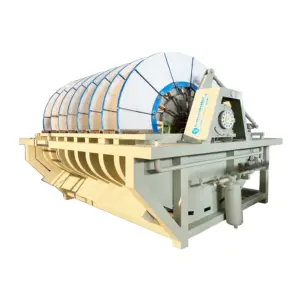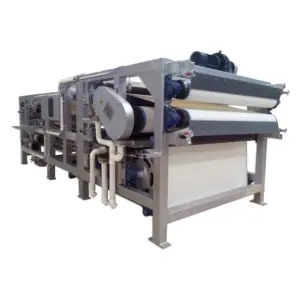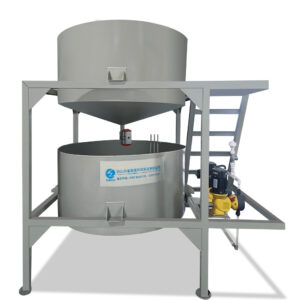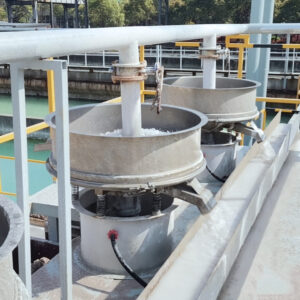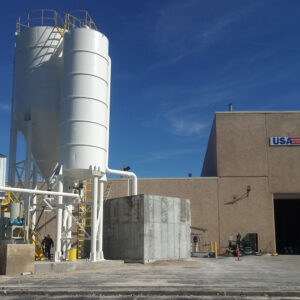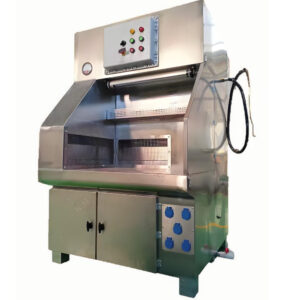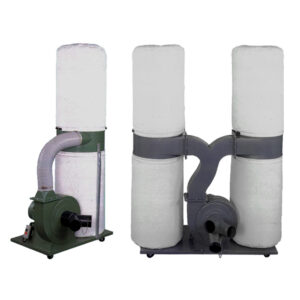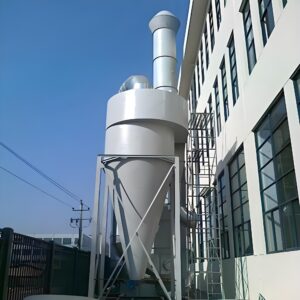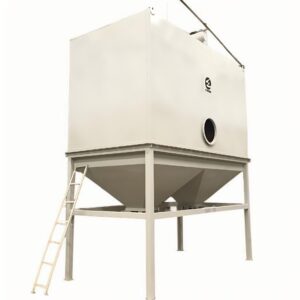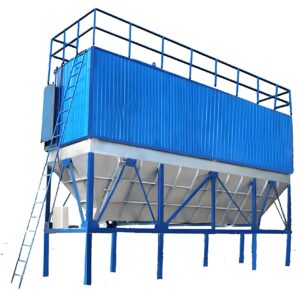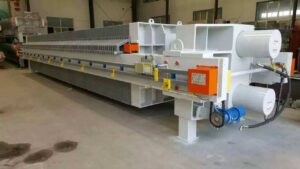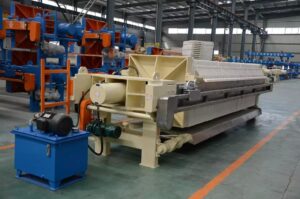În lumea rapidă a filtrării industriale, eficiența este esențială. Un aspect adesea neglijat al menținerii unei performanțe optime de filtrare este procesul de schimbare a pânzelor filtrante. Schimbarea rapidă și eficientă a pânzei filtrante poate avea un impact semnificativ asupra productivității, poate reduce timpii morți și poate asigura o calitate constantă a filtrării. Acest articol analizează tehnicile de economisire a timpului pentru instalarea rapidă a pânzei filtrante, oferind informații valoroase pentru profesioniștii din industrie care doresc să își eficientizeze operațiunile.
Pe măsură ce tehnologia de filtrare continuă să evolueze, la fel se întâmplă și cu metodele de instalare și înlocuire a pânzelor filtrante. De la tehnici inovatoare de pliere la instrumente specializate, există numeroase modalități de a accelera procesul fără a compromite calitatea. Vom explora aceste tehnici în detaliu, oferind sfaturi practice care pot fi implementate imediat în diverse contexte industriale.
Înainte de a intra în detaliile instalării rapide a pânzei filtrante, este important să înțelegem rolul esențial pe care îl joacă pânzele filtrante în procesul de filtrare. Aceste componente aparent simple sunt eroii necunoscuți ai multor operațiuni industriale, fiind responsabile pentru separarea eficientă și eficace a solidelor de lichide. Prin optimizarea procesului de instalare, operatorii se pot asigura că sistemele lor de filtrare funcționează întotdeauna la capacitate maximă.
"Instalarea corectă a pânzei filtrante nu este doar o chestiune de viteză; este vorba despre menținerea integrității procesului de filtrare, minimizând în același timp timpul de inactivitate. O pânză filtrantă bine instalată poate spori semnificativ eficiența generală a unui sistem de filtrare."
Odată cu această bază, să explorăm diferitele tehnici și strategii care vă pot ajuta să realizați schimbări rapide și eficiente ale pânzei de filtrare.
Care sunt instrumentele esențiale pentru instalarea rapidă a pânzei filtrante?
Înainte de a intra în procesul de instalare, este esențial să aveți la dispoziție uneltele potrivite. O trusă de scule bine echipată poate reduce semnificativ timpul și efortul necesare pentru schimbarea pânzei de filtrare.
Un kit tipic de instalare rapidă a pânzei filtrante ar trebui să includă unelte specializate concepute pentru eficiență și precizie. Acestea pot include dispozitive de tensionare a pânzei, ghidaje de aliniere și elemente de fixare cu eliberare rapidă.
Unul dintre cele mai importante instrumente din arsenalul dvs. este un instrument de instalare a pânzei filtrante de înaltă calitate. Acest dispozitiv specializat vă poate ajuta să poziționați rapid și precis pânza pe placa filtrantă, asigurând o potrivire și o etanșare corespunzătoare.
"Investiția în instrumente de instalare de calitate poate reduce timpii de schimbare a pânzei filtrante cu până la 50%, ducând la îmbunătățiri semnificative ale eficienței operaționale generale."
Iată un tabel care prezintă câteva instrumente esențiale pentru instalarea rapidă a pânzei filtrante:
| Instrument | Scop | Beneficii de economisire a timpului |
|---|---|---|
| Dispozitiv de tensionare a țesăturii | Asigură o tensiune adecvată a țesăturii | Reduce ridurile și îmbunătățește etanșarea |
| Ghid de aliniere | Facilitează poziționarea precisă a pânzei | Minimizează timpul de repoziționare |
| Elemente de fixare cu eliberare rapidă | Fixează rapid cârpa | Accelerează instalarea și îndepărtarea |
| Instrument de instalare | Ajută la plasarea țesăturii | Îmbunătățește precizia și reduce timpul de manipulare |
Asigurându-vă că aveți aceste unelte la îndemână, veți fi bine pregătiți să abordați schimbarea pânzei de filtrare cu rapiditate și precizie.
Cum poate o pregătire adecvată să eficientizeze procesul de instalare?
Pregătirea este esențială atunci când vine vorba de instalarea rapidă a pânzei filtrante. O abordare bine organizată poate reduce semnificativ timpul petrecut pentru fiecare schimbare și poate minimiza riscul de erori.
Înainte de a începe procesul de instalare, este esențial să aveți la dispoziție toate materialele și instrumentele necesare. Acestea includ nu numai pânzele filtrante noi, ci și orice materiale de curățare necesare pentru pregătirea plăcilor filtrante.
O tehnică de economisire a timpului este plierea prealabilă a pânzelor filtrante în funcție de cerințele specifice ale presei filtrante. Acest lucru poate reduce drastic timpul petrecut cu manipularea pânzei în timpul instalării.
"Pânzele filtrante prepliate pot reduce timpul de instalare cu până la 30%, permițând schimburi mai rapide și creșterea timpului de funcționare."
Pentru a eficientiza și mai mult procesul, luați în considerare crearea unei liste de verificare sau a unei proceduri standard de operare (SOP) pentru schimbarea pânzei filtrante. Acest lucru asigură faptul că nu sunt omise etape și că procesul este consecvent între diferiți operatori.
Iată un tabel care prezintă pașii cheie de pregătire pentru instalarea rapidă a pânzei filtrante:
| Etapa de pregătire | Scop | Impact de economisire a timpului |
|---|---|---|
| Adunați toate materialele | Se asigură că totul este la îndemână | Elimină timpul pierdut în căutarea articolelor |
| Pânze filtrante preîndoite | Reduce manipularea pe tipar | Accelerează plasarea pe plăci de filtrare |
| Curățați plăcile de filtrare | Pregătește suprafața pentru o pânză nouă | Îmbunătățește aderența țesăturii și reduce refacerile |
| Revizuirea SOP | Asigură un proces consecvent | Minimizează erorile și îmbunătățește eficiența |
Concentrându-vă pe o pregătire temeinică, puteți pregăti terenul pentru un proces de instalare rapidă și fără probleme a pânzei filtrante.
Ce tehnici de pliere pot accelera plasarea pânzei filtrante?
Modul în care pliați pânzele filtrante poate avea un impact semnificativ asupra vitezei și ușurinței de instalare. Stăpânirea tehnicilor eficiente de pliere este crucială pentru Instalarea rapidă a pânzei filtrante.
O metodă populară este plierea în acordeon, care permite desfășurarea rapidă și uniformă a pânzei pe placa filtrantă. Această tehnică implică plierea pânzei într-un model în zigzag, facilitând desfășurarea și poziționarea precisă.
O altă tehnică eficientă este plierea de la centru spre exterior, în care pânza este pliată de la margini spre centru. Această metodă este utilă în special pentru plăcile filtrante mai mari, deoarece ajută la menținerea controlului asupra pânzei în timpul instalării.
"Implementarea tehnicilor avansate de pliere poate reduce timpul de instalare a pânzei filtrante cu până la 40%, ducând la îmbunătățiri semnificative în eficiența operațională."
Este important să rețineți că cea mai eficientă tehnică de pliere poate varia în funcție de tipul specific de filtru-presă și de pânză utilizate. Experimentarea cu diferite metode vă poate ajuta să găsiți abordarea optimă pentru echipamentul dumneavoastră.
Iată un tabel care compară diferite tehnici de pliere:
| Tehnica de pliere | Cel mai bun pentru | Beneficii de economisire a timpului |
|---|---|---|
| Ori acordeon | Plăci dreptunghiulare standard | Implementare rapidă și uniformă |
| Ori Center-Out | Plăci filtrante mari | Control mai bun în timpul instalării |
| Rulare Pliere | Plăci filtrante circulare | Desfășurare și poziționare ușoară |
| Pliere de la colț la colț | Plăci filtrante pătrate | Proces simplificat de aliniere |
Prin stăpânirea acestor tehnici de pliere, puteți reduce semnificativ timpul petrecut la instalarea fiecărei pânze filtrante, ceea ce duce la îmbunătățirea eficienței generale a proceselor dvs. de filtrare.
Cum poate munca în echipă să îmbunătățească viteza de schimbare a pânzei de filtrare?
În timp ce abilitățile individuale sunt importante, munca în echipă poate crește dramatic viteza și eficiența schimbării pânzei filtrante. Coordonarea eforturilor între mai mulți operatori poate duce la economii semnificative de timp.
O echipă bine coordonată poate împărți eficient sarcinile, o persoană pregătind hainele noi, în timp ce alta le îndepărtează pe cele vechi. Această abordare paralelă a procesării poate reduce considerabil timpul total necesar pentru o schimbare completă.
Comunicarea este esențială în schimbările de pânză de filtrare bazate pe echipă. Semnalele clare și protocoalele stabilite asigură faptul că fiecare membru al echipei își cunoaște rolul și îl poate executa fără confuzie sau întârziere.
"Implementarea unei abordări bazate pe echipă pentru schimbarea pânzei de filtrare poate reduce timpii de instalare cu până la 60%, minimizând semnificativ timpii morți de producție."
Formarea este esențială pentru o muncă de echipă eficientă în instalarea pânzei filtrante. Sesiunile de practică regulate îi pot ajuta pe membrii echipei să își perfecționeze abilitățile și să își îmbunătățească coordonarea, ducând la schimbări mai rapide și mai eficiente în timp.
Iată un tabel care evidențiază beneficiile muncii în echipă în instalarea pânzei filtrante:
| Aspectul muncii în echipă | Beneficii | Impact de economisire a timpului |
|---|---|---|
| Divizia de sarcini | Procesare paralelă | Reducerea timpului total de schimbare |
| Comunicare clară | Minimizează confuzia | Previne întârzierile și erorile |
| Mișcări coordonate | Flux de lucru fără probleme | Îmbunătățește eficiența |
| Formare periodică | Îmbunătățirea abilităților | Crește viteza în timp |
Prin promovarea unei abordări orientate către echipă în ceea ce privește schimbarea pânzei de filtrare, puteți reduce semnificativ timpii morți și îmbunătăți eficiența generală a operațiunilor de filtrare.
Ce rol joacă automatizarea în accelerarea instalării pânzei filtrante?
În era Industriei 4.0, automatizarea joacă un rol din ce în ce mai important în procesele industriale, inclusiv în instalarea pânzei filtrante. Sistemele automatizate pot reduce semnificativ timpul și forța de muncă necesare pentru schimbarea pânzei.
Unele prese filtrante avansate sunt acum echipate cu sisteme automate de schimbare a pânzei. Aceste sisteme pot îndepărta pânzele vechi, curăța plăcile de filtrare și instala pânze noi cu o intervenție umană minimă.
În timp ce sistemele complet automatizate nu sunt fezabile pentru toate operațiunile, instrumentele semiautomatizate pot oferi în continuare economii semnificative de timp. De exemplu, dispozitivele automate de tensionare pot asigura o tensiune constantă a țesăturii pe toate plăcile, reducând necesitatea ajustărilor manuale.
"Implementarea sistemelor automate sau semi-automate de instalare a pânzei filtrante poate reduce timpii de schimbare cu până la 70%, îmbunătățind în mod dramatic eficiența operațională și reducând costurile forței de muncă."
Este important să rețineți că, deși automatizarea poate oferi beneficii semnificative, aceasta necesită, de asemenea, o analiză atentă a unor factori precum investiția inițială, cerințele de întreținere și formarea operatorilor.
Iată un tabel care compară instalarea manuală și automată a pânzei filtrante:
| Aspect | Instalare manuală | Instalare automatizată |
|---|---|---|
| Viteza | Moderat | Foarte rapid |
| Consistență | Variază în funcție de competențele operatorului | Foarte coerent |
| Costul inițial | Scăzut | Înaltă |
| Cerințe privind forța de muncă | Înaltă | Scăzut |
| Flexibilitate | Înaltă | Limitat la funcțiile programate |
Deși automatizarea oferă un potențial impresionant de economisire a timpului, este esențial să evaluați cu atenție dacă este soluția potrivită pentru nevoile dvs. operaționale specifice și pentru constrângerile bugetare.
Cum poate o întreținere corespunzătoare să prelungească intervalul de timp dintre schimbările pânzei filtrante?
În timp ce instalarea rapidă a pânzei filtrante este crucială, prelungirea intervalului de timp dintre schimbări prin întreținerea corespunzătoare poate duce la câștiguri și mai mari de eficiență. Îngrijirea regulată și atenția acordată pânzelor filtrante pot prelungi semnificativ durata de viață a acestora și pot menține performanțele optime.
Un aspect cheie al întreținerii pânzei filtrante este curățarea regulată. Implementarea unui program de spălare pe dos sau de curățare chimică poate ajuta la prevenirea acumulării de particule care pot bloca pânza și pot reduce eficiența filtrării.
De asemenea, depozitarea corespunzătoare a pânzelor filtrante de rezervă este esențială. Păstrarea pânzelor într-un mediu curat, uscat și protejat de razele UV și de temperaturile extreme poate contribui la menținerea integrității acestora și la asigurarea faptului că sunt gata pentru o instalare rapidă atunci când este necesar.
"Programele eficiente de întreținere a pânzei de filtrare pot prelungi durata de viață a pânzei cu până la 30%, reducând frecvența schimbărilor și timpii morți asociați."
Inspectarea regulată a pânzelor filtrante poate ajuta la identificarea potențialelor probleme înainte ca acestea să devină probleme grave. Căutați semne de uzură, deteriorare sau încețoșare excesivă și înlocuiți pânzele în mod proactiv pentru a menține performanța optimă de filtrare.
Iată un tabel care prezintă principalele practici de întreținere a pânzelor filtrante:
| Practica de întreținere | Scop | Beneficii |
|---|---|---|
| Curățare regulată | Previne acumularea de particule | Menține eficiența filtrării |
| Depozitare corespunzătoare | Păstrează integritatea țesăturii | Se asigură că cârpele sunt pregătite pentru utilizare |
| Inspecție de rutină | Identifică problemele potențiale | Permite înlocuirea proactivă |
| Parametrii de funcționare optimizați | Reduce stresul asupra țesăturilor | Prelungește durata de viață a țesăturii |
Prin implementarea unui program cuprinzător de întreținere, puteți reduce semnificativ frecvența schimbării pânzei filtrante, ceea ce duce la îmbunătățirea eficienței operaționale și reducerea costurilor.
Ce strategii de formare pot îmbunătăți competența operatorului în instalarea rapidă a pânzei filtrante?
Chiar și cu cele mai bune instrumente și tehnici, viteza și eficiența instalării pânzei filtrante depind în cele din urmă de abilitatea operatorilor. Implementarea unor strategii eficiente de instruire poate îmbunătăți semnificativ competența operatorilor și poate reduce timpii de instalare.
O abordare eficientă este elaborarea unui program de formare structurat care să acopere toate aspectele instalării pânzei filtrante, de la pregătire la verificările finale. Acest program ar trebui să includă atât cunoștințe teoretice, cât și practică.
Tutorialele video pot fi un instrument excelent pentru demonstrarea tehnicilor adecvate de instalare. Acestea pot fi consultate de operatori în timpul instruirii și ca o reîmprospătare înainte de efectuarea modificărilor.
"Programele cuprinzătoare de instruire a operatorilor pot reduce timpul de instalare a pânzei filtrante cu până la 50%, îmbunătățind în același timp consecvența și calitatea instalațiilor."
Evaluările regulate ale aptitudinilor și cursurile de perfecționare pot contribui la menținerea și îmbunătățirea competenței operatorului în timp. Luați în considerare implementarea unui program de certificare pentru recunoașterea și motivarea operatorilor calificați.
Iată un tabel care prezintă componentele cheie ale unui program eficient de instruire pentru instalarea pânzei filtrante:
| Componenta de formare | Scop | Beneficii |
|---|---|---|
| Cunoștințe teoretice | Înțelegerea principiilor de filtrare | Îmbunătățește procesul decizional în timpul instalării |
| Practică practică | Dezvoltarea abilităților | Îmbunătățește viteza și precizia |
| Tutoriale video | Demonstrarea vizuală a tehnicilor | Oferă instruire consecventă |
| Evaluări ale abilităților | Identificarea domeniilor de îmbunătățire | Permite formarea direcționată |
| Programul de certificare | Recunoașterea competenței | Motivează îmbunătățirea continuă |
Investind în instruirea completă a operatorilor, vă puteți asigura că echipa dvs. este bine echipată pentru a efectua instalări rapide și eficiente ale pânzei filtrante, maximizând beneficiile echipamentului dvs. de filtrare.
În concluzie, schimbarea rapidă a pânzei filtrante necesită o abordare multifațetată care combină instrumentele potrivite, tehnicile eficiente, munca în echipă și formarea continuă. Prin punerea în aplicare a strategiilor de economisire a timpului prezentate în acest articol, operatorii de filtrare industrială pot reduce semnificativ timpii morți, pot îmbunătăți productivitatea și pot menține calitatea constantă a filtrării.
De la investiția în instrumente de instalare specializate până la stăpânirea tehnicilor avansate de pliere, fiecare aspect al procesului de schimbare a pânzei filtrante oferă oportunități de optimizare. Potențialul de automatizare ar trebui, de asemenea, să fie luat în considerare cu atenție, deoarece poate oferi economii substanțiale de timp în scenarii adecvate.
Cu toate acestea, este important să ne amintim că viteza nu ar trebui să vină niciodată în detrimentul calității. Instalarea corectă este esențială pentru menținerea integrității procesului de filtrare și asigurarea unei performanțe optime. Prin echilibrarea vitezei cu precizia, operatorii pot obține cele mai bune rezultate posibile.
În cele din urmă, cheia succesului constă în îmbunătățirea continuă. Reevaluarea periodică a proceselor de instalare a pânzei filtrante, informarea cu privire la noile tehnologii și tehnici și investițiile în formarea continuă a operatorilor vă vor ajuta să vă asigurați că operațiunile de filtrare rămân eficiente și eficace pe termen lung.
Prin adoptarea acestor principii și valorificarea expertizei unor lideri din industrie precum PORVOO, profesioniștii în filtrare își pot optimiza operațiunile, reduce costurile și rămâne competitivi într-un peisaj industrial în continuă evoluție. Nu uitați, fiecare secundă economisită în instalarea pânzei filtrante se traduce prin creșterea productivității și îmbunătățirea rezultatelor finale.
Resurse externe
- Instalarea pânzei filtrante Micronics - YouTube - O demonstrație video realizată de Micronics cu privire la modul de instalare a unei țesături filtrante CGR pe o placă filtrantă, inclusiv instrumentele necesare și instrucțiuni pas cu pas.
- Filtru presat cu membrană - PKF 100 NG-2 Instrucțiuni de utilizare - Un manual de utilizare detaliat care include secțiuni privind instalarea și îndepărtarea pânzelor filtrante pentru diferite tipuri de plăci filtrante într-o presă filtrantă cu membrană.
- Cum se schimbă pânzele de filtrare? - Latham International - Un ghid de la Latham International care explică procesul de schimbare a pânzei filtrante, inclusiv plierea, rularea și fixarea pânzei pe placa filtrantă.
- Instalarea pânzei filtrante - M.W. Watermark - Informații privind serviciile de instalare a pânzei filtrante furnizate de M.W. Watermark, inclusiv instalarea profesională, furnizarea de materiale și sfaturi pentru instalarea DIY.
- Pânze filtrante standard și personalizate - M.W. Watermark - O resursă care discută diferite tipuri de țesături de filtrare, instalarea acestora și sfaturi de întreținere, împreună cu explicații ale unor termeni precum orbirea țesăturii.
